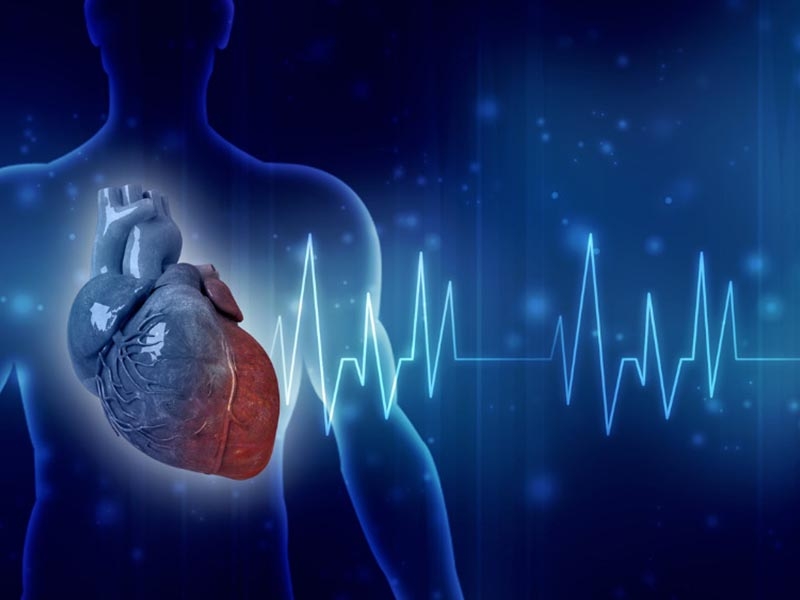
Electrocardiogram
Watch our video about Electrocardiogram
What is an Electrocardiogram?
An Electrocardiogram (ECG or EKG) is a medical test that records the electrical activity of the heart over a period of time. This non-invasive procedure provides crucial insights into the heart’s rhythm, rate, and overall electrical conduction, allowing healthcare providers to detect abnormalities or irregularities in heart function.
At Clinic Consultation, we offer high-quality Electrocardiograms conducted by experienced professionals. Using advanced technology, the test ensures accurate results, helping diagnose and monitor heart conditions effectively.
What is an Electrocardiogram Used For?
An Electrocardiogram is primarily used to diagnose and monitor heart-related conditions. It helps identify irregular heart rhythms, assess damage from heart attacks, and evaluate the effectiveness of treatments like pacemakers or medications.
Additionally, an ECG is a valuable screening tool for individuals at risk of developing heart disease. By providing a clear view of the heart’s electrical activity, it allows for early detection and preventive care, ensuring better long-term outcomes.
How Does an Electrocardiogram Work?
During an Electrocardiogram, small adhesive electrodes are placed on the patient’s chest, arms, and legs. These electrodes detect the electrical signals produced by the heart as it beats. The signals are recorded by the ECG machine and displayed as a graph, which can be analysed by a doctor to assess heart function.
The procedure is painless and typically takes less than 15 minutes. At Clinic Consultation, we prioritise patient comfort and ensure a seamless experience throughout the test.
What Are the Types of Electrocardiograms?
Several types of Electrocardiograms are available, each suited for specific diagnostic purposes:
Resting ECG
This is the most common type, performed while the patient is lying down in a relaxed state. It provides a baseline measurement of the heart’s electrical activity and is used to detect issues like arrhythmias or heart attacks.Stress ECG (Exercise ECG)
Conducted while the patient performs physical activity, such as walking on a treadmill or cycling. It assesses how the heart responds to exertion, helping diagnose conditions like exercise-induced arrhythmias or coronary artery disease.Holter Monitoring
A portable ECG device worn by the patient for 24-48 hours to record continuous heart activity. It is particularly useful for detecting irregularities that may not appear during a standard ECG.Event Recorder
Similar to Holter monitoring but used for longer periods. Patients activate the recorder when they experience symptoms, capturing intermittent issues like fainting or palpitations.
Each type of ECG is tailored to the patient’s needs, ensuring accurate diagnosis and effective monitoring of heart conditions.
What Conditions Can Be Detected Through an Electrocardiogram?
Electrocardiograms are instrumental in diagnosing a variety of heart-related conditions, including:
Arrhythmias
Identifies irregular heartbeats, such as atrial fibrillation or tachycardia.Heart Attack
Detects damage to the heart muscle caused by a myocardial infarction.Coronary Artery Disease (CAD)
Evaluates restricted blood flow to the heart due to blocked arteries.Heart Failure
Monitors electrical changes associated with weakened heart function.Pericarditis
Detects inflammation of the heart’s surrounding tissue.Electrolyte Imbalances
Identifies abnormalities in potassium or calcium levels affecting heart rhythms.Conduction Disorders
Diagnoses issues with the heart’s electrical pathways, such as bundle branch blocks.
When is an Electrocardiogram Indicated?
An Electrocardiogram is recommended in the following scenarios:
Chest Pain
Evaluates whether the pain is related to a heart attack or another cardiac issue.Shortness of Breath
Assesses heart function as a possible cause of breathing difficulties.Palpitations
Investigates the cause of irregular or rapid heartbeats.Dizziness or Fainting
Identifies heart-related reasons for loss of consciousness or light-headedness.High Blood Pressure
Monitors the heart for complications related to hypertension.Pre-Surgery Assessment
Ensures the heart is functioning properly before undergoing surgery.Family History of Heart Disease
Acts as a preventive measure for individuals with a genetic predisposition to cardiac conditions.
Pre- and Post-Electrocardiogram Care
Before the Procedure:
- Wear loose-fitting clothing for easy access to the chest area.
- Avoid applying lotions or oils on the chest as they may interfere with electrode placement.
- Inform your doctor of any medications you are taking, as they may affect the results.
After the Procedure:
- There are no restrictions following a standard ECG, and you can resume normal activities immediately.
- Discuss the results with your doctor to understand the findings and next steps.
- If further tests or treatments are recommended, your doctor will provide clear instructions.
What Are the Contraindications for an Electrocardiogram?
While ECGs are generally safe and non-invasive, certain factors may limit their use or accuracy:
- Skin conditions or injuries that make electrode placement difficult.
- Presence of medical devices like pacemakers, which may alter readings.
- Excessive movement during the test, affecting signal clarity.
Your doctor will evaluate your situation to determine if modifications are needed for the procedure.
What Are the Alternatives to an Electrocardiogram?
For patients unable to undergo an ECG, alternative diagnostic tools include:
- Echocardiogram: Uses Ultrasound to visualise the heart’s structure and function.
- Cardiac MRI: Provides detailed images of the heart and blood vessels.
- Blood Tests: Evaluates markers like troponin levels to detect heart damage.
- Stress Echo: Combines a stress test with ultrasound imaging for a comprehensive assessment.
Our team at Clinic Consultation ensures the most suitable diagnostic approach is chosen for each patient.
Book Your Electrocardiogram at Clinic Consultation
Electrocardiograms are a vital tool for assessing heart health and diagnosing cardiac conditions. At Clinic Consultation, we offer expert care and advanced technology to provide accurate and timely results. Schedule your ECG online today and take the first step towards better heart health.
Click here to schedule an appointment online